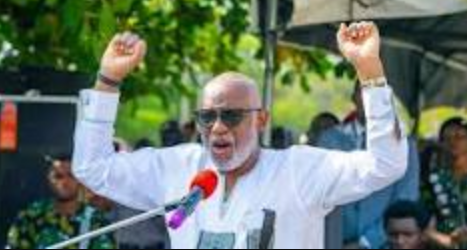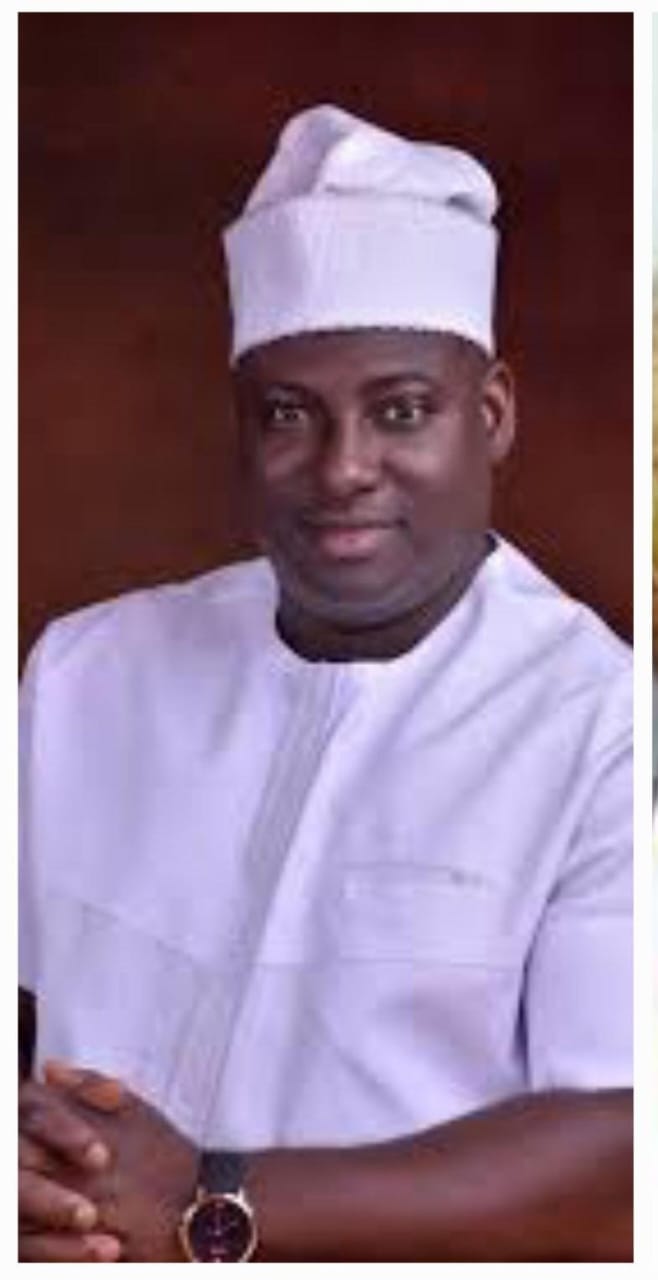Few days ago, Ondo PDP accuses Governor Akeredolu of secretly signing Executive Order to empower son (Babajide Akeredolu) who was appointed three months ago as the Director General of the Performance and Project Implementation Monitoring Unit. What follows is an article I wrote two years ago, published in Nigerian Village Square, with the above title. Enjoy.
Nigeria has experienced 21 years of uninterrupted democracy. To say it is still nascent is pedestrian. If Nigerian democracy is a Nigerian, s/he must have been eligible to vote since 3 years ago when it was 18, eligible for marriage, and be independent of parents. Nonetheless, here we are. Our democracy seems not to be growing; it is not developing. It is still a toddler learning how to crawl. This is sickening, saddening and pathetic. It is what makes Governor Rotimi Akeredolu’s appointment of non-indigene as a special assistant a topical issue.
Indigeneship according to Geschiere is the status of being a “native,” or “son of the soil,” in a particular locality in Nigeria, where it grants the holder the ability to claim historical belonging in contrast to “settlers” who originate elsewhere.” This notion of ‘son of the land’ informs the distress calls to the Governor’s office which keep ringing unabatedly.
Indigenship, as explained by Geschiere, is not supported by the Constitution of the Federal Republic of Nigeria. The word or concept ‘settler’ is completely absent in the Constitution. So, constitutionally speaking, a Nupe man from Niger or Kwara State who resides in Kano or Borno State is not considered a settler. Also, the Constitution does not make a clear difference between ‘indigene’ and ‘citizen’.
To buttress this point, indigene (or its derivative) appears three times in the Constitution. Section 318. (1) states that: “In this constitution, unless it is otherwise expressly provided or the context otherwise requires- ‘belong to’ or its grammatical expression when used with reference to a person in a state refers to a person either or whose parents or any of whose grand parents was a member of a community indigenous to that state”. Section 147(3) reads: “…President shall appoint at least one Minister from each State, who shall be an indigene of such State.”
This Section would have justified the common notion that every indigene of a state is by default a Nigerian citizen but not every Nigerian citizen is an indigene of every state in Nigeria. However, Section 14 (4) creates an ambiguity. How? It stipulates that “The composition of the government of a state, a local government council, or any of the agencies of such government or council, and the conduct of the affairs of the government or council or such agencies shall be carried out in such manner as to recognize the diversity of the people within its area of authority and the need to promote a sense of belonging and loyalty among all the people of the Federation.”
If sense of belonging and loyalty will be promoted among all the people of the Federation in a state or local government council it means every Nigerian irrespective of state of origin shall be entitled to hold office in any state of the Federation through election or nomination.
In Section 25(1), it further says: “The following persons are citizens of Nigeria by birth-namely; (a) every person born in Nigeria before the date of independence, either of whose parents or any of whose grandparents belongs or belonged to a community indigenous to Nigeria.” These are the three places where indigene appears in the Constitution. If Akeredolu’s appointment of a non-indigene as a special assistant is analysed from the perspective of the law; he will be vindicated. Being a legal practitioner himself, he must have weighed this controversial appointment against the provisions of the law. He must have found it justifiable before causing the ensuing hullabaloo. On the legal side, I am of the opinion that he has done nothing wrong.
Let’s turn our lens to the politics. Was his action politically right? NO! Here is why. Don’t forget the parable of Nigeria’s democracy I painted above. When we should be competing with advanced democracies after 21 years of experimentation, we are still struggling to crawl. We are yet to internalise some basic concepts of democracy. We are still battling with the ‘we’ vs. ‘them’ anti progress mind-set. Every politics, as they say, is local politics. This is even truer of Nigeria where politics of godfatherism is the norm.
Plus, the Nigerian State is yet to recognize independent candidacy. This means that every elected public office holder must have gotten the position through the platform of a political party; and through the toil and sweat of parties’ card-carrying members. It is therefore a moral responsibility of a serving governor to ensure that those who labour for the party are well compensated. Rewarding an outsider when party loyalists are neglected to the fringe will be counter-productive. It is a political miscalculation. I will highlight the consequences of the Governor’s appointment shortly.
But before then, it is important to clarify some points. One, based the Constitution’s inability to make a clear difference between citizens and indigenes and its blindness to the concept of ‘settlers’, any Nigerian can be appointed to any political position in any state. The political shrewdness of a governor will make his act excusable if he does it wisely.
Two, such a person ought to have contributed—in no small measure—to the progress of the party. Three, in addition to the above, he or she must have shown unalloyed loyalty to the party and, perhaps, to the governor. Appointing this kind of person who is considered non-indigene will not raise an eyebrow. If it does raise an eyebrow, it will be excusable and pacifiable.
However, politically speaking, the appointment of Ngozi Ugochi—a 26 year old Igbo from Imo State—who has just completed her NYSC as Special Assistant on Gender, Research and Documentation is a misnomer. She does not qualify those criteria that could make appointment of non-indigene excusable and justifiable. What intensified the dissatisfaction of party loyalists is that Ngozi allegedly has a close ties with the governor’s wife, Betty Anyanwu Akeredolu who also hails from Imo State.
This is considered using public office for private gain. This is a form of corruption. When did governor’s office and government affairs become family affair? Some are of the opinion that since Mrs Betty is the Governor’s wife, her family members deserve positions in the government of her husband. This is also missing the point. The point is that the government is not that of her husband (Akeredolu), it is the government of Ondo State people and residents.
Examples of non-indigene holding top political positions in government of states other than theirs abound in Nigeria. The present Vice President, Prof. Yemi Osibanjo hails from Ogun State and served as the Commissioner for Justice in Lagos State under Asiwaju Bola Tinubu for eight years. Former Governor of Osun State, Ogbeni Abdurauf Aregbesola was, prior to his governorship, the Commissioner for Works in Lagos State. Mallam Ibrahim Shekarau, a former governor of Kano State is a Native of Borno State and right now in the Senate representing Kano.
In 2015, three Igbo candidates won election into the Lagos State House of Assembly on the platform of PDP (an opposition party). I can give more examples. All the aforementioned are non-indigenes in those states; yet they ascended to political prominence. However, they have resided in those states long enough (some by birth) and have contributed to the political economy of those states—at least as tax payers and party members. This is obviously not the case with Ngozi Ugochi.
By and large, the governor’s action might cost him support of party loyalists. Campaign for re-election is ongoing as the election has been fixed for October 10. This may mar the chance of the Governor’s re-election bid. It can also lead to political apathy among the electorates. Governor Akeredolu’s action should be adjudged right or wrong along this line of reasoning.
Admittedly, it is legally right; but it is politically incorrect. This is a clear case of law and politics in Nigeria. So, how do you react to Akeredolu’ appointment of son? Please share your views.
Abdulkadir Salaudeen
salahuddeenabdulkadir@gmail.com



